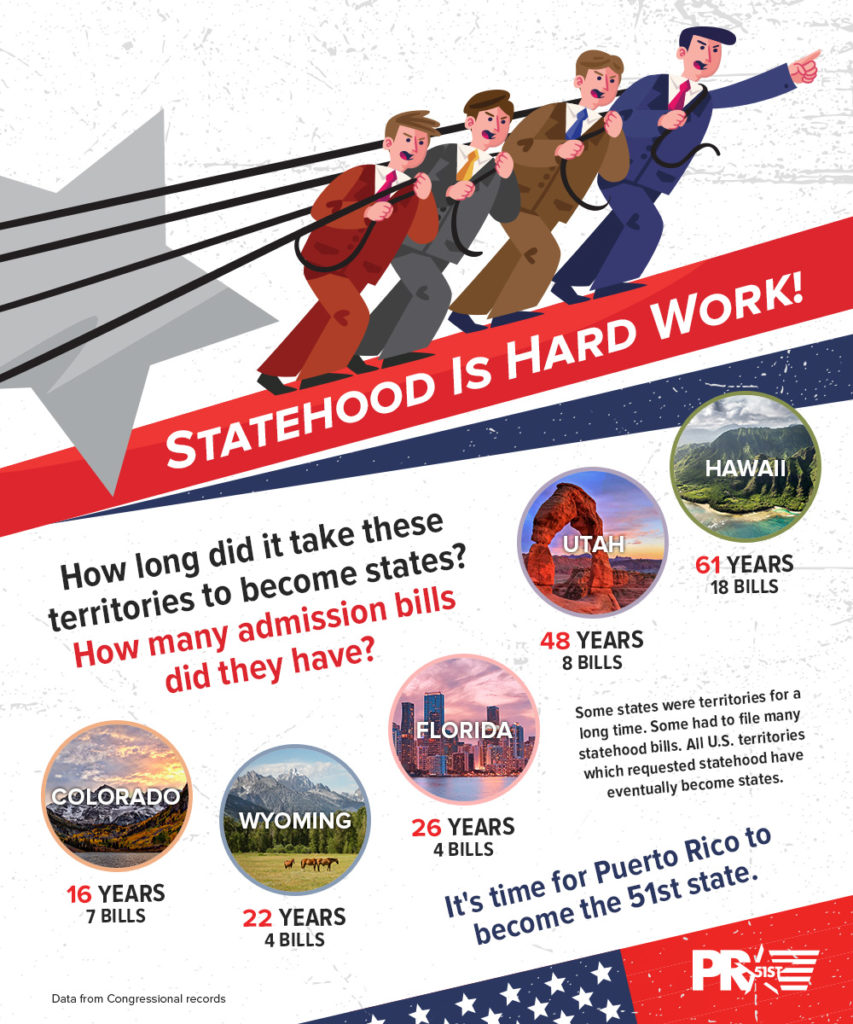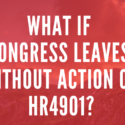We’ve already considered what will happen if HR4901 passes. What if it doesn’t pass? That is, what if the Puerto Rico Statehood Admission Bill of 2019 doesn’t pass before the end of 2019?
This is not a problem. A Congress lasts for two years. Each year is called a session. Congress is over for 2019, and no action was taken on HR4901. This Congress still has the whole of 2020 to vote on the bill.
How does a bill become a law?
A bill is introduced. Usually, it is then sent to a committee that has special knowledge about the bill. In the case of HR4901, the committee is the House Committee on Natural Resources. The bill has been sent to that committee, because they have jurisdiction over U.S. territories.
The committee studies the bill and may make changes. Then they send it to the Congress as a whole for a vote. If the bill passes in the House, the Senate will also consider it. If it passes in the Senate and the House, it goes to the president for a signature.
What if Congress never votes on the bill?
The committee might not send the bill to Congress before time is up. If the Committee on Natural Resources fails to send HR 4901 to Congress for a vote before the end of 2020, the bill will be said to have “died in Committee.”
That doesn’t mean that Congress voted against the bill. In fact, sometimes that’s the chosen outcome. If it looks as though Congress would vote against a bill, supporters might try to delay a vote.
For example, as Marco Rubio pointed out, Congress might not have enough information to make a good decision about Puerto Rico’s status. In that case, supporters will try to make sure Congress fully understands why the bill should pass. If they don’t think they’ve succeeded, they could delay the vote and try again with the next Congress.
That’s where you come in. Contact your representative and make sure they understand why statehood is the right choice.
What if Congress votes against the bill?
Many states had to file statehood bills repeatedly before they were admitted as states. As the infographic below shows, Hawaii had 18 bills before being admitted, and Utah had 8.

Congress delayed admissions and denied admission more than once for many of the 32 territories which have already become states. Presidents have also vetoed admission for territories which are now states.
Every territory which has requested statehood has become a state. It can take time, but Puerto Rico will also become a state.
How can we speed it up?
Make sure your congressperson knows that you care about statehood for Puerto Rico. Your congressional reps care about what the voters in your jurisdiction care about. We have a special page with tools to make it easy to get in touch with your representative.
We hope you will let us know what your congressperson says.








One response
“Every territory which has requested statehood has become a state. It can take time, but Puerto Rico will also become a state.”
I have heard this many times. But what nobody want to say or recognize is that those territories were incorporated previous to become a state. PR is in disadvantage due to his special status of non-incorporated ruled by the most unfair and discriminatory decisions of Supreme Court in the Insular Cases.
To advance equality rights as U. S. citizens, we most push for the Supreme Court to review the fore mentioned cases.